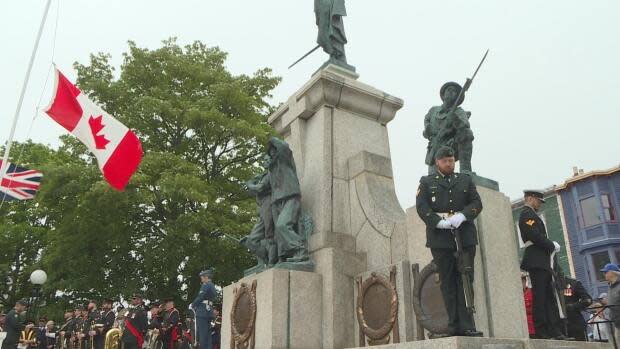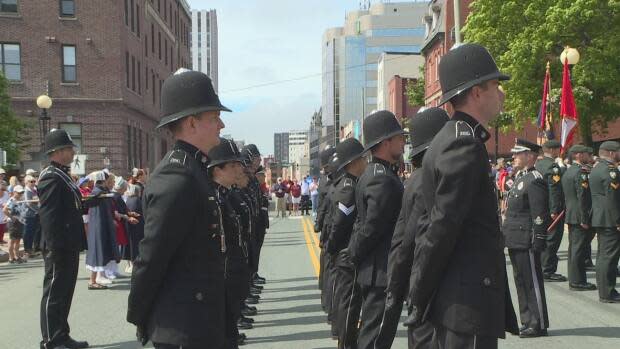N.L. remembers its fallen soldiers in Memorial Day service

Spectators gathered in St. John's Friday for a sombre service to honour the Royal Newfoundland Regiment, which lost many of its soldiers in a First World War battle more than a century ago.
Hundreds watched marching bands and heard speeches, while descendants of the soldiers laid wreaths and framed photos of family members lost at Beaumont Hamel
The battle was a defining moment for the Regiment, many of whom never came home, and has etched itself into Newfoundland history.
On July 1, 1916, British and French forces attempted to take German soldiers by surprise, but failed. Only 68 Newfoundland Regiment members were able to fight the following day, with over 700 wounded, killed or missing in the span of those few bloody hours.

On Friday morning, David Akenhead placed war memorabilia at the foot of the memorial to the fallen solders.
His great-uncle, David, served as a medic with the British army and teamed up with the Newfoundlanders. He aided the Regiment a few months after Beaumont Hamel, at the Battle of Flers–Courcelette, where tanks were used for the first time.
"It's what they call a pyrrhic victory," Akenhead said. "It scared the lights out of the opposition momentarily."

Perry Grandy, chair of the Royal Newfoundland Regiment Advisory Council, addressed the crowd, telling the tale of the Regiment's most harrowing challenge.
"The First Newfoundland Regiment was a proven combat unit.... Members were in excellent spirits, and there was little sign of tension or anxiety," Grandy said.
"They were an impeccable example of cohesion, teamwork and deadly efficiency."
But those qualities couldn't prevent the slaughter that lay ahead.
"The battalion was decimated, reduced to just over 10 per cent of its strength," he said.
"A generation of future fishers ... was lost to war."


